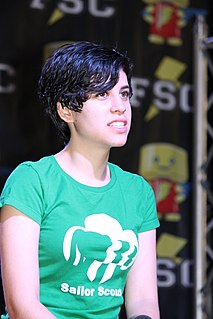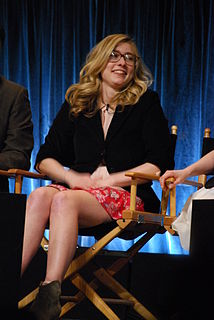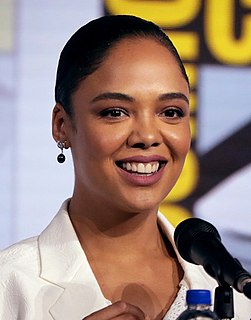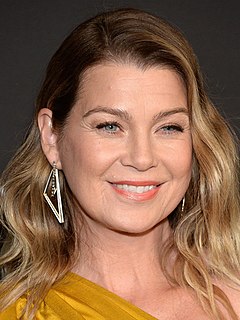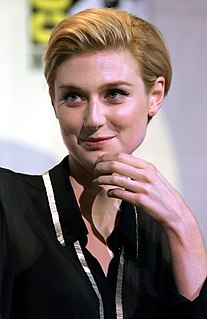A Quote by Ashly Burch
When we create female characters, I think often there is a tendency to kind of make female characters emotionally bulletproof.
Related Quotes
I think the superhero platform gives the female character, you know, a relate-ability for the male audience as well. So, I think that's why people are kinda gravitating towards female super hero characters, and also female characters in general as big parts of the film. So, that's great for us, female actors who want to do roles like that, which is really great.
I think part of the pressure put on 'strong female characters' comes from the fact that there is so often 'the team girl,' who must be all things to all people. Part of avoiding that is having as many female characters as I can, and allowing them to thrive in their own right, not inside a framework they didn't ask for and don't want.
I'm drawn to female characters, not all of them are strong characters. I think I'm drawn to female characters partly because they don't have as easy or as obvious a relationship to power in society, and so they suffer under social constraints or have to maneuver within them in ways men sometimes don't, or are unconscious about, or have certain liberties that are invisible to them.
I'm very conditioned by my surroundings, by the influences of social media, by the television I watch. And I always found, growing up, that even inspiring female characters or complex female characters in television and film, I often found that their complexity was actually just another facet of their sexuality.
To me, feminism in literature deals with the female characters being in some way central to the thematic concerns of the book, or that they are agents of change to some degree. In other words, the lens is focused deeply and intensely on the female characters and doesn't waver, which allows for a glimpse into the rich inner lives of the characters.
People often ask me if I feel discriminated against as a black female director. I don't. I'm actually offered a ton of stuff. But I only want to direct what I write. And I prefer to focus on black female characters. What's most important to me is to put characters up onscreen who are not perfect, but who are human and flawed.
My whole theory about why I couldn’t find any creators who realized they were leaving out female characters is because they were raised on the same ratio. I just heard someone the other day call it either ‘smurfing’ a movie, which is when there’s one female character, or ‘minioning’ a movie, which is when there’s no female characters.
